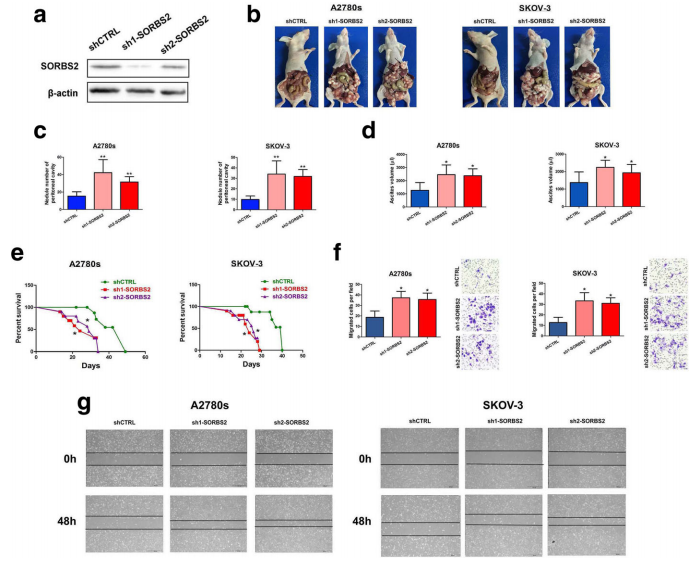May 2231, 22018

Authors
Zhao L†, Wang W†, Huang S†, Yang Z†, Xu L†, Yang Q†, Zhou X, Wang J, Shen Q, Wang C, Le X, Feng M, Zhou N, Lau WB, Lau B, Yao S, Yi T, Wang X, Zhao X, Wei Y and Zhou S.
Genome Biology 2018, doi:https://doi.org/10.1186/s13059-018-1412-6
Abstract
Background
Ovarian cancer constitutes one of the most lethal gynecologic malignancies for females. Currently, early detection strategies and therapeutic options for ovarian cancer are far from satisfactory, leading to high diagnosis rates at late stages and disease relapses. New avenues of therapy are needed that target key processes in ovarian cancer progression. While a variety of non-coding RNAs have been proven to regulate ovarian cancer metastatic progression, the functional roles of RNA-binding proteins (RBPs) in this process are less well defined.
Results
In this study, we identify that the RBP sorbin and SH3 domain containing 2 (SORBS2) is a potent suppressor of ovarian cancer metastatic colonization. Mechanistic studies show that SORBS2 binds the 3′ untranslated regions (UTRs) of WFDC1 (WAP four-disulfide core domain 1) and IL-17D (Interleukin-17D), two secreted molecules that are shown to act as metastasis suppressors.
Enhanced expression of either WFDC1 or IL-17D potently represses SORBS2 depletion-mediated cancer metastasis promotion. By enhancing the stability of these gene transcripts, SORBS2 suppresses ovarian cancer invasiveness and affects monocyte to myeloid-derived suppressor cell and M2-like macrophage polarization, eliciting a tumor-suppressive immune microenvironment.
Conclusions
Our data illustrate a novel post-transcriptional network that links cancer progression and immunomodulation within the tumor microenvironment through SORBS2-mediated transcript stabilization.
Keywords
RNA binding protein, SORBS2, Ovarian cancer,Metastasis, mRNA stability, Immunomodulation, WFDC1, IL-17D

